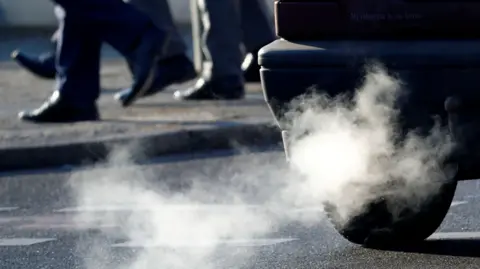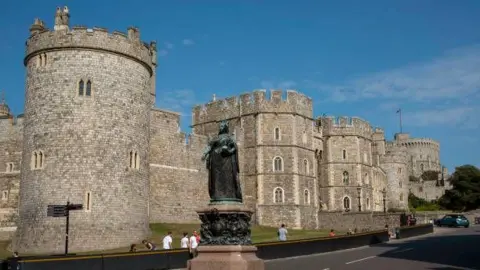Air pollution falls across Windsor and Maidenhead
 Reuters
ReutersPollution levels across four hotspots in the Royal Borough of Windsor and Maidenhead have fallen significantly in the last year.
In 2024 the council installed pollution sensors near busy roads in Maidenhead, Bray, Wraysbury and Windsor.
It followed 2,000 people signing a petition in 2022 calling on the authority to do more to reduce pollution from car exhausts.
Now the Royal Borough says levels of nitrogen dioxide in those hotspots have dropped low enough to allow it to spend more time and energy developing borough-wide solutions.
It said it would now focus more of its efforts on reducing levels of particulate matter instead.
That is what is created every time someone drives their car down a road, with tiny fragments of dust released into the air from brake and tyre wear, as well as from the road surface itself.
The fragments are so small they can get into people's lungs and bloodstream.
A report by the council said air pollution particularly affected the most vulnerable in society - children, older people and those with heart and lung conditions.
 Getty Images
Getty ImagesThe Royal Borough is now introducing an Air Quality Management Strategy to help it bring down pollution levels further.
It said this would look at how it could persuade more people to leave their cars at home and either cycle or walk to work instead.
The council also said its plans to change how traffic moves through the heart of Windsor would help reduce levels of both nitrogen dioxide and particulate matter.
This will see the pedestrianisation of Castle Hill, near to the Castle, as well as a series of other public realm enhancements.
You can follow BBC Berkshire on Facebook, X (Twitter), or Instagram.
